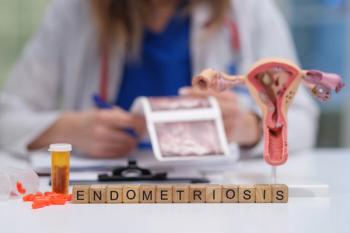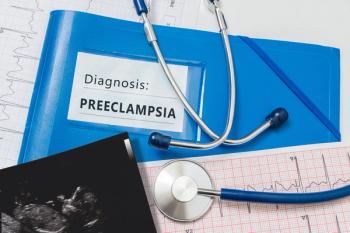
In a recent study, improved postpartum blood pressure control was associated with increased white matter brain volume after hypertensive pregnancy.

In a recent study, improved postpartum blood pressure control was associated with increased white matter brain volume after hypertensive pregnancy.

A study found that adding low-dose megestrol acetate to standard anti-oestrogen therapy significantly reduced tumor proliferation in women with breast cancer.

A study found higher remnant cholesterol levels are independently associated with increased odds of endometriosis.

Review some of the top stories from the Contemporary OB/GYN website over the past week and catch up on anything you may have missed.

A study found distinct alterations in vaginal and gut microbial composition and function among patients with endometriosis.

A study found that distinct cervicovaginal microbial patterns are linked to the success of frozen embryo transfer in endometriosis patients.

A study found gestational diabetes prevalence has increased steadily across all racial and ethnic groups over the past decade.

A study found that risk-stratified planned early-term delivery significantly lowers preeclampsia incidence without increasing cesarean birth.

New guidelines provide recommendations for adjusting antiseizure medication doses during pregnancy and postpartum to support healthy outcomes.

A study links opioid-related diagnoses during pregnancy to increased maternal morbidity and neonatal complications.

A study found no clear evidence that menopause hormone therapy increases or reduces dementia risk.

Criteria-independent genetic testing identifies more women with pathogenic breast cancer variants than guideline-based approaches.

A study found that an investigational α-lactalbumin–targeting vaccine induced immune responses in 74% of participants at risk for triple-negative breast cancer.

A study found HPV vaccination is linked to reduced odds of severe vulvar and vaginal precancerous lesions.

New research shows that COVID-19 vaccination in pregnancy significantly lowers the risk of hospitalization and preterm delivery.

Take a quick look at everything you may have missed in December, including the latest FDA updates, top stories, and expert recommendations.

Take a quick look at everything you may have missed in 2025, including the latest FDA updates, top stories, and expert recommendations.

Check out the 5 biggest videos of 2025, and review best practices.

Check out the 5 biggest contraception stories of 2025, and review best practices.

Check out the 5 biggest fertility stories of 2025, and review best practices.

Check out the 5 biggest obstetrics stories of 2025, and review best practices.

A study found that intimate partner violence and sexual violence against children drive substantial global mortality and disability.

A study found widespread nonadherence to cervical cancer screening guidelines, with screening modality linked to overscreening and underscreening.

A study found hydroxyurea exposure during pregnancy was not associated with increased risks among patients with sickle cell disease.

Recent FDA approvals and emerging research highlight how neurokinin receptor antagonists are expanding nonhormonal options for managing vasomotor symptoms.

Advances including FDA-approved neurokinin receptor antagonists are reshaping vasomotor symptom management by providing effective, nonhormonal options for menopausal women.

Review some of the top stories from the Contemporary OB/GYN website over the past week and catch up on anything you may have missed.

A multidisciplinary initiative increased prenatal iron deficiency screening 6-fold and intravenous iron treatment 20-fold.

The FDA has granted 510(k) clearance to the FemVue Controlled device, enabling in-office ultrasound assessment of fallopian tube status.

In a recent study, states enforcing abortion bans without health exceptions saw significant increases in obstetric-related EMTALA violations.

Published: January 10th 2024 | Updated:

Published: May 30th 2024 | Updated:

Published: August 7th 2025 | Updated:

Published: May 1st 2023 | Updated:

Published: April 5th 2024 | Updated:

Published: December 16th 2025 | Updated: December 16th 2025